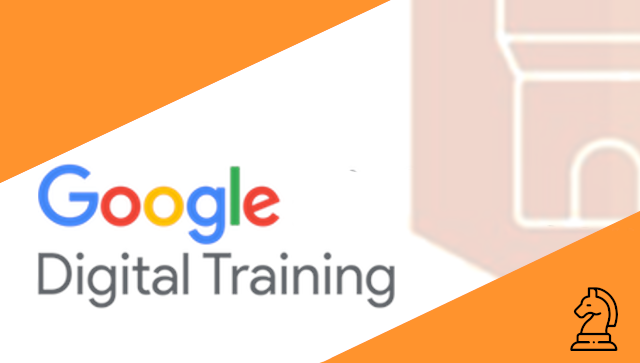Corso Project Planning: Putting It All Together

Course delivered in English
Lessons: 16
Livello: Foundational
Access: Free Online Course (Audit)
What will you learn:
- Describe the components of the project planning phase and their significance.
- Identify tools and best practices to build a project plan and risk management plan.
- Describe how to estimate, track, and maintain a budget.
- Draft a communication plan and explain how to manage it.
Week 1 - Beginning the planning phase
You will learn how the course is structured, the benefits of planning and key components of the planning phase, the difference between tasks and milestones, and how to set milestones.
This module has 10 videos (Total 39 min), 7 readings, 5 quizzes and it should take 5 hours to complete.
10 videos
- Introduction to Course (33 minutes)
- The benefits of project planning (2 minutes)
- Launching the planning phase (3 minutes)
- Facilitating a project kick-off meeting (7 minutes)
- Understanding tasks and milestones (2 minutes)
- The importance of setting milestones (4 minutes)
- How to set milestones (3 minutes)
- Creating a work breakdown structure (7 minutes)
- Wrap-up (1 minute)
- Clennita: How planning creates a sense of team (2 minutes)
7 readings
- Course 3 overview (10 minute)
- Helpful resources to get started (10 minute)
- Tips for leading a successful kick-off meeting (10 minute)
- Setting milestones: Best practices (10 minute)
- Breaking down the work breakdown structure (10 minute)
- Activity Exemplar: Use a WBS to create project tasks and milestones - Part 1 (10 minute)
- Activity Exemplar: Use a WBS to create project tasks and milestones - Part 2 (10 minute)
5 practice exercises
- Reflection: Project planning considerations (19 minutes)
- Test your knowledge: The planning phase components (6 minutes)
- Activity: Use a WBS to create milestones and project tasks - Part 1 (30 minutes)
- Activity: Use a WBS to create milestones and project tasks - Part 2 (30 minutes)
- Weekly Challenge (150 minutes)
Week 2 - Building a project plan
You will learn why a project plan is necessary and what components it contains, how to create accurate time estimates and why they are important, and which tools and best practices to use to build a project plan.
This module has 9 videos (Total 42 min), 6 readings, 5 quizzes and should take approx 4 hours to complete
9 videos
- Introduction: Building a project plan (1 minute)
- Components of a project plan (2 minutes)
- Making realistic time estimates (7 minutes)
- Capacity planning and the critical path (8 minutes)
- Getting accurate time estimates from your team (6 minutes)
- Angel: The value of interpersonal skills in time estimation (3 minutes)
- Developing a project schedule (5 minutes)
- Project plan best practices (5 minutes)
- Wrap-up (1 minute)
6 readings
- Putting together the pieces of a project plan (10 minutes)
- Case study: Run fast, pay later (10 minutes)
- Overcoming the planning fallacy (10 minutes)
- Creating a critical path (10 minutes)
- Creating a project plan: Tools and templates (10 minutes)
- Introduction to Kanban boards (10 minutes)
4 practice exercises
- Test your knowledge: Getting started with a project plan (8 minutes)
- Reflection: Time estimation (15 minutes)
- Test your knowledge: Utilizing tools to build a project plan (6 minutes)
- Weekly Challenge (230 minutes)
Week 3 - Managing budgeting and procurement
You will learn what the components of a project budget are, how the budgeting process works, and how to manage a project budget. You will also explore how the procurement process works, what documentation is necessary, and how to obtain support and avoid ethical conflicts during the process.
This module has 12 videos (Total 51 min), 8 readings, 8 quizzes and should take approx 5 hours to complete
12 videos
- Introduction: Managing budgeting and procurement (1 minute)
- The importance of budget setting (5 minute)
- Key components of a project budget (4 minute)
- Creating a project budget (6 minute)
- Maintaining a project budget (4 minute)
- Understanding procurement (3 minutes)
- The procurement process (3 minutes)
- Common procurement documentation (4 minutes)
- Creating a Statement of Work (5 minutes)
- Obtaining procurement support (3 minutes)
- Ethics in the procurement process (5 minutes)
- Wrap-up (1 minutes)
8 readings
- Project budgeting 101 (10 minutes)
- Helpful budget templates (10 minutes)
- Overcoming budgeting challenges (10 minutes)
- Activity Exemplar: Develop a project budget (10 minutes)
- Optional: Introduction to budgeting terms (10 minutes)
- Tips for the procurement process (10 minutes)
- Activity Exemplar: Complete a Statement of Work (SoW) (10 minutes)
- Avoiding ethical traps in procurement (10 minutes)
8 practice exercises
- Test your knowledge: Understanding project budgets (4 minutes)
- Activity: Develop a project budget (30 minutes)
- Test your knowledge: Creating a project budget (6 minutes)
- Test your knowledge: Introduction to procurement (8 minutes)
- Activity: Complete a Statement of Work (SoW)(30 minutes)
- Test your knowledge: Navigating procurement challenges (8 minutes)
- Reflection: Procurement ethics (15 minutes)
- Weekly Challenge (340 minutes)
Week 4 - Managing risks effectively
You will learn what risk management is and how it can help prevent project failure, what tools can help identify and manage risks, how to identify different types of risks and measure their impact on a project, and how to use a risk management plan to communicate and resolve risks. This module has 10 videos (Total 38 min), 5 readings, 7 quizzes and should take approx 4 hours to complete.
10 videos
- Introduction: Managing risks effectively (1 minutes)
- The importance of risk management (5 minutes)
- Stanton: Managing my first project (2 minutes)
- Tools to help identify risks (6 minutes)
- Types of risk (5 minutes)
- Risk mitigation strategies (3 minutes)
- Building a risk management plan (3 minutes)
- Communicating risks to stakeholders (4 minutes)
- Aji: Risk management at Google (3 minutes)
- Wrap-up (1 minute)
5 readings
- Phases of risk management (10 minutes)
- Uncover opportunities using risk management (10 minutes)
- How to create a fishbone diagram (10 minutes)
- Managing single point of failure risks (10 minutes)
- Visualizing dependency relationships (10 minutes)
6 practice exercises
- Test your knowledge: Risk management (8 minutes)
- Test your knowledge: Risk scenarios (6 minutes)
- Test your knowledge: Measuring risk impact (8 minutes)
- Test your knowledge: Identifying and assessing risks (8 minutes)
- Test your knowledge: Mitigating and communicating risks (6 minutes)
- Weekly Challenge (440 minutes)
Course details:
- Course 3 of 3 in the Google Project Management
- Flexible deadlines - Reset deadlines in accordance to your schedule.
- Beginner Level
- Approx. 16 hours to complete
- English with Subtitles:
This is the third course in the Google Project Management Certificate program. This course will explore how to map out a project in the second phase of the project life cycle: the project planning phase. You will examine the key components of a project plan, how to make accurate time estimates, and how to set milestones. Next, you will learn how to build and manage a budget and how the procurement processes work. Then, you will discover tools that can help you identify and manage different types of risk and how to use a risk management plan to communicate and resolve risks. Finally, you will explore how to draft and manage a communication plan and how to organize project documentation. Current Google project managers will continue to instruct and provide you with hands-on approaches for accomplishing these tasks while showing you the best project management tools and resources for the job at hand.
Learners who complete this program should be equipped to apply for introductory-level jobs as project managers. No previous experience is necessary.
By the end of this course, you will be able to:
- Describe the components of the project planning phase and their significance.
- Explain why milestones are important and how to set them.
- Make accurate time estimates and describe techniques for acquiring them from team members.
- Identify tools and best practices to build a project plan and risk management plan.
- Describe how to estimate, track, and maintain a budget.
- Explain the procurement process and identify key procurement documentation.
- Draft a communication plan and explain how to manage it.
- Explain why milestones are important and how to set them.
- Explain why a project plan is necessary and what components it contains.
- Make accurate time estimates and describe techniques for acquiring them from team members.
This course is organized by the external partner Google Academy in partnership with Coursera. In order to take this course you will need to register on their Academy platform where you can take advantage of this and many other courses on offer. As per 23rd March 2021 the course is made available "free of charge" and therefore you should not be charged for it. This course is one part of a series of six to equip you with the skills you need to apply to introductory-level roles in project management.
About Coursera:
- Coursera offers a 7-day Free Trial
- Enroling to Coursera can cost €32 per month to continue learning after trial ends.
- Unlimited access to all courses in the Certificate
- Watch lectures, try assignments, participate in discussion forums, and more.
- Cancel anytime.
- No penalties - simply cancel before the trial ends if it's not right for you.
- Go as fast as you can - the faster you go, the more you save.
- Certificate when you complete.
- Share on your resume, LinkedIn, and CV.
- Learn on your own schedule
- Course videos and readings
- Graded quizzes and assignments
- No degree or experience required for many programs
Once you have finished the course, go back to the course page in Guilds42 to upload proof of completion (jpg / png / pdf). Your document will be evaluated and if appropriate and verifiable, you will find this certification validated in the dashboard.

